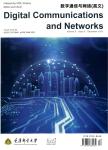Federated learning based QoS-aware caching decisions in fog-enabled internet of things networks
作者机构:School of Communication and Information EngineeringChongqing University of Post and TelecommunicationsChongqing400065China School of Communication and Information EngineeringUniversity of SheffieldUnited Kingdom
出 版 物:《Digital Communications and Networks》 (数字通信与网络(英文版))
年 卷 期:2023年第9卷第2期
页 面:580-589页
核心收录:
学科分类:0810[工学-信息与通信工程] 08[工学] 0804[工学-仪器科学与技术] 080402[工学-测试计量技术及仪器]
基 金:supported by the National Natural Science Foundation of China(NSFC)(61831002) the European Union Horizon 2020 research and innovation programme under the Marie Skodowska-Curie grant agreement No 734798 Innovation Project of the Common Key Technology of Chongqing Science and Technology Industry(Grant no.cstc2018jcyjAX0383).
主 题:Fog computing network IoT D2D communication Deep neural network Federated learning
摘 要:Quality of Service(QoS)in the 6G application scenario is an important issue with the premise of the massive data transmission.Edge caching based on the fog computing network is considered as a potential solution to effectively reduce the content fetch delay for latency-sensitive services of Internet of Things(IoT)devices.Considering the time-varying scenario,the machine learning techniques could further reduce the content fetch delay by optimizing the caching decisions.In this paper,to minimize the content fetch delay and ensure the QoS of the network,a Device-to-Device(D2D)assisted fog computing network architecture is introduced,which supports federated learning and QoS-aware caching decisions based on time-varying user preferences.To release the network congestion and the risk of the user privacy leakage,federated learning,is enabled in the D2D-assisted fog computing network.Specifically,it has been observed that federated learning yields suboptimal results according to the Non-Independent Identical Distribution(Non-IID)of local users data.To address this issue,a distributed cluster-based user preference estimation algorithm is proposed to optimize the content caching placement,improve the cache hit rate,the content fetch delay and the convergence rate,which can effectively mitigate the impact of the Non-IID data set by clustering.The simulation results show that the proposed algorithm provides a considerable performance improvement with better learning results compared with the existing algorithms.



